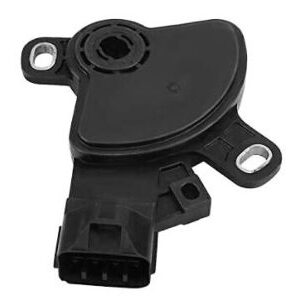**Stopping Power Unveiled: The Crucial Role of Brake Pads in Vehicle Safety**
In the intricate machinery of an automobile, where motion meets control, one component stands as a vital safeguard—the brake pad. Often overshadowed by the allure of speed and performance, brake pads quietly ensure safe and reliable braking, providing drivers with the confidence to navigate roads with precision and control. Join us as we explore the significance, functionality, and importance of brake pads in the realm of automotive safety.
**Understanding the Essence: What are Brake Pads?**
Brake pads are essential components of a vehicle’s braking system, responsible for generating friction to slow down or stop the vehicle. Located within the brake calipers, brake pads press against the brake rotors (or discs) when the brake pedal is applied, creating friction and converting kinetic energy into heat, thereby slowing down the vehicle.
**The Evolution of Braking Technology**
In the early days of automotive engineering, braking systems relied primarily on mechanical components such as brake shoes and drums to generate friction and slow down the vehicle. However, as vehicles became faster, heavier, and more powerful, the need for more effective braking solutions became apparent. Brake pads emerged as a transformative technology, enabling vehicles to achieve shorter stopping distances, improved performance, and enhanced safety.
**The Significance of Reliable Braking**
In the dynamic environment of modern driving, where road conditions can change in an instant, reliable braking is crucial for safe operation. Brake pads play a pivotal role in this regard, providing the necessary friction to bring the vehicle to a controlled stop, even in emergency situations. By ensuring consistent and reliable braking performance, brake pads contribute to vehicle safety and driver confidence on the road.
**The Silent Workhorse: How Do Brake Pads Work?**
Despite their unassuming appearance, brake pads employ sophisticated materials and engineering principles to fulfill their role effectively. Most brake pads are composed of a friction material bonded to a metal backing plate. When the brake pedal is applied, hydraulic pressure forces the brake calipers to squeeze the brake pads against the brake rotors, generating friction and slowing down the vehicle.
The friction material on the brake pads undergoes wear and tear during braking, gradually wearing down over time. As a result, brake pads require periodic inspection and replacement to ensure optimal braking performance and safety.
**The Unseen Benefits: Advantages of Brake Pads**
While brake pads may operate quietly behind the scenes, their impact on vehicle safety and performance is undeniable. Here are some key advantages of brake pads:
1. **Enhanced Safety:** Brake pads provide reliable braking performance, allowing drivers to bring their vehicles to a controlled stop quickly and safely, even in emergency situations.
2. **Improved Performance:** High-quality brake pads can enhance braking performance, reducing stopping distances, minimizing brake fade, and improving overall vehicle handling and control.
3. **Extended Component Lifespan:** By generating friction and absorbing heat during braking, brake pads help protect other components of the braking system, such as brake rotors and calipers, from excessive wear and damage.
4. **Peace of Mind:** Regular inspection and maintenance of brake pads provide drivers with peace of mind, knowing that their vehicle’s braking system is in optimal condition and ready to perform when needed most.
**Looking Ahead: The Future of Braking Technology**
As automotive technology continues to advance, so too will the field of braking technology. Innovations in brake pad materials, design, and manufacturing processes may lead to even more efficient, durable, and environmentally friendly braking solutions in the future.
Furthermore, as vehicles transition towards electrification and autonomous driving, brake pads will play a crucial role in optimizing braking performance, integrating with advanced driver assistance systems (ADAS), and enhancing overall vehicle safety.
**In Conclusion: The Guardian of Vehicle Safety**
In the dynamic landscape of automotive engineering, where safety and reliability are paramount, brake pads emerge as silent but indispensable guardians of vehicle safety. Their unassuming presence belies their critical importance in ensuring safe and reliable braking performance, providing drivers with the confidence to navigate roads with precision and control. So, the next time you hit the brakes and feel the vehicle come to a smooth, controlled stop, remember to thank the unsung hero working diligently behind the scenes—the brake pad.
In stock (can be backordered)
$18,926.31
**Stopping Power Unveiled: The Crucial Role of Brake Pads in Vehicle Safety**
In the intricate machinery of an automobile, where motion meets control, one component stands as a vital safeguard—the brake pad. Often overshadowed by the allure of speed and performance, brake pads quietly ensure safe and reliable braking, providing drivers with the confidence to navigate roads with precision and control. Join us as we explore the significance, functionality, and importance of brake pads in the realm of automotive safety.
**Understanding the Essence: What are Brake Pads?**
Brake pads are essential components of a vehicle’s braking system, responsible for generating friction to slow down or stop the vehicle. Located within the brake calipers, brake pads press against the brake rotors (or discs) when the brake pedal is applied, creating friction and converting kinetic energy into heat, thereby slowing down the vehicle.
**The Evolution of Braking Technology**
In the early days of automotive engineering, braking systems relied primarily on mechanical components such as brake shoes and drums to generate friction and slow down the vehicle. However, as vehicles became faster, heavier, and more powerful, the need for more effective braking solutions became apparent. Brake pads emerged as a transformative technology, enabling vehicles to achieve shorter stopping distances, improved performance, and enhanced safety.
**The Significance of Reliable Braking**
In the dynamic environment of modern driving, where road conditions can change in an instant, reliable braking is crucial for safe operation. Brake pads play a pivotal role in this regard, providing the necessary friction to bring the vehicle to a controlled stop, even in emergency situations. By ensuring consistent and reliable braking performance, brake pads contribute to vehicle safety and driver confidence on the road.
**The Silent Workhorse: How Do Brake Pads Work?**
Despite their unassuming appearance, brake pads employ sophisticated materials and engineering principles to fulfill their role effectively. Most brake pads are composed of a friction material bonded to a metal backing plate. When the brake pedal is applied, hydraulic pressure forces the brake calipers to squeeze the brake pads against the brake rotors, generating friction and slowing down the vehicle.
The friction material on the brake pads undergoes wear and tear during braking, gradually wearing down over time. As a result, brake pads require periodic inspection and replacement to ensure optimal braking performance and safety.
**The Unseen Benefits: Advantages of Brake Pads**
While brake pads may operate quietly behind the scenes, their impact on vehicle safety and performance is undeniable. Here are some key advantages of brake pads:
1. **Enhanced Safety:** Brake pads provide reliable braking performance, allowing drivers to bring their vehicles to a controlled stop quickly and safely, even in emergency situations.
2. **Improved Performance:** High-quality brake pads can enhance braking performance, reducing stopping distances, minimizing brake fade, and improving overall vehicle handling and control.
3. **Extended Component Lifespan:** By generating friction and absorbing heat during braking, brake pads help protect other components of the braking system, such as brake rotors and calipers, from excessive wear and damage.
4. **Peace of Mind:** Regular inspection and maintenance of brake pads provide drivers with peace of mind, knowing that their vehicle’s braking system is in optimal condition and ready to perform when needed most.
**Looking Ahead: The Future of Braking Technology**
As automotive technology continues to advance, so too will the field of braking technology. Innovations in brake pad materials, design, and manufacturing processes may lead to even more efficient, durable, and environmentally friendly braking solutions in the future.
Furthermore, as vehicles transition towards electrification and autonomous driving, brake pads will play a crucial role in optimizing braking performance, integrating with advanced driver assistance systems (ADAS), and enhancing overall vehicle safety.
**In Conclusion: The Guardian of Vehicle Safety**
In the dynamic landscape of automotive engineering, where safety and reliability are paramount, brake pads emerge as silent but indispensable guardians of vehicle safety. Their unassuming presence belies their critical importance in ensuring safe and reliable braking performance, providing drivers with the confidence to navigate roads with precision and control. So, the next time you hit the brakes and feel the vehicle come to a smooth, controlled stop, remember to thank the unsung hero working diligently behind the scenes—the brake pad.
| Weight | 0.15 kg |
|---|---|
| Warehouse | Inventory at warehouse 2 |


Get E-mail updates about our latest products and special offers.
Sensors and More is Jamaica’s ultimate online auto parts store. Established in 2020, we specialize in genuine electrical parts for Japanese, Read more…
Reviews
There are no reviews yet.